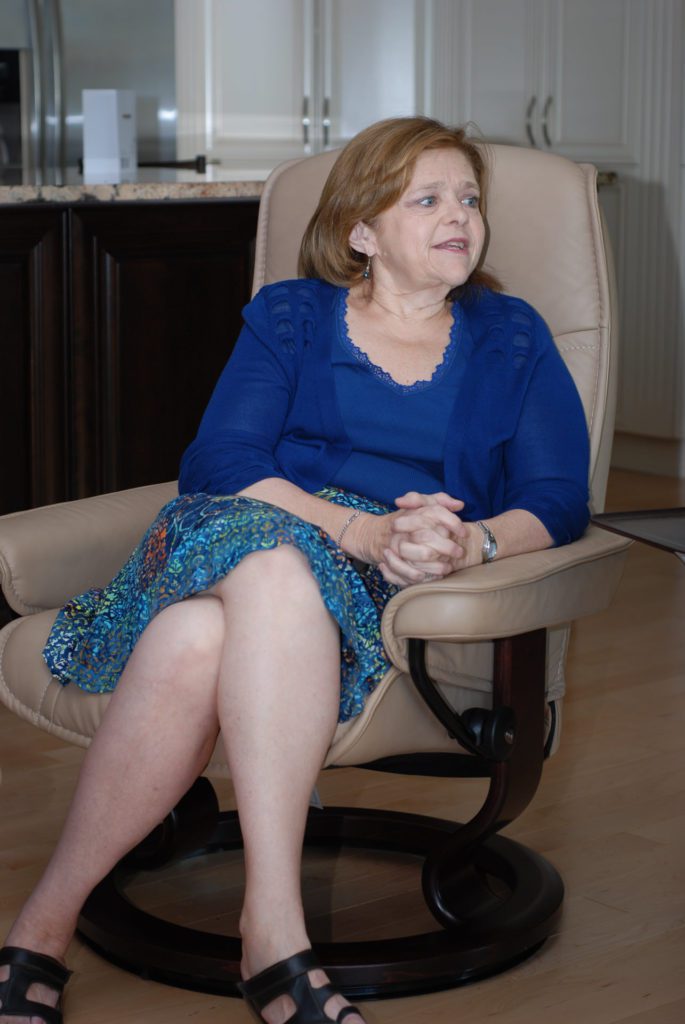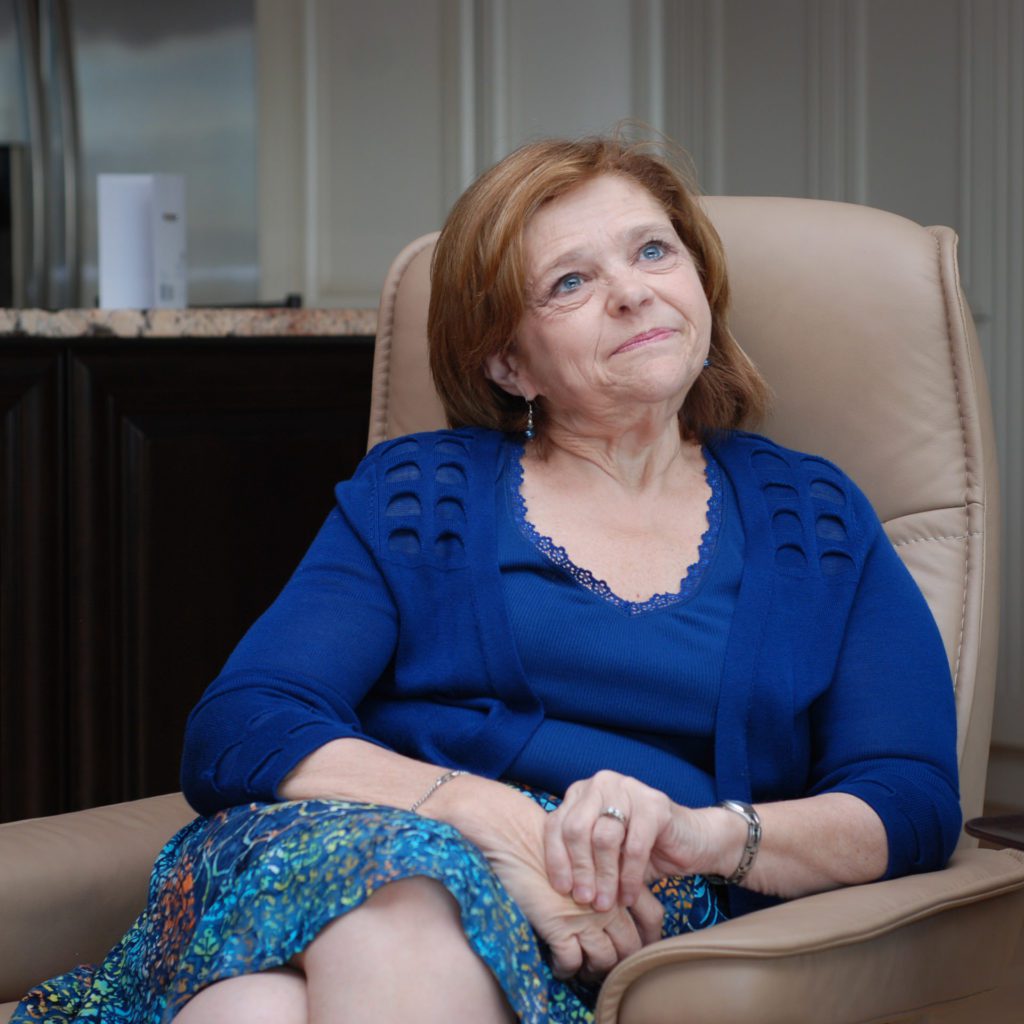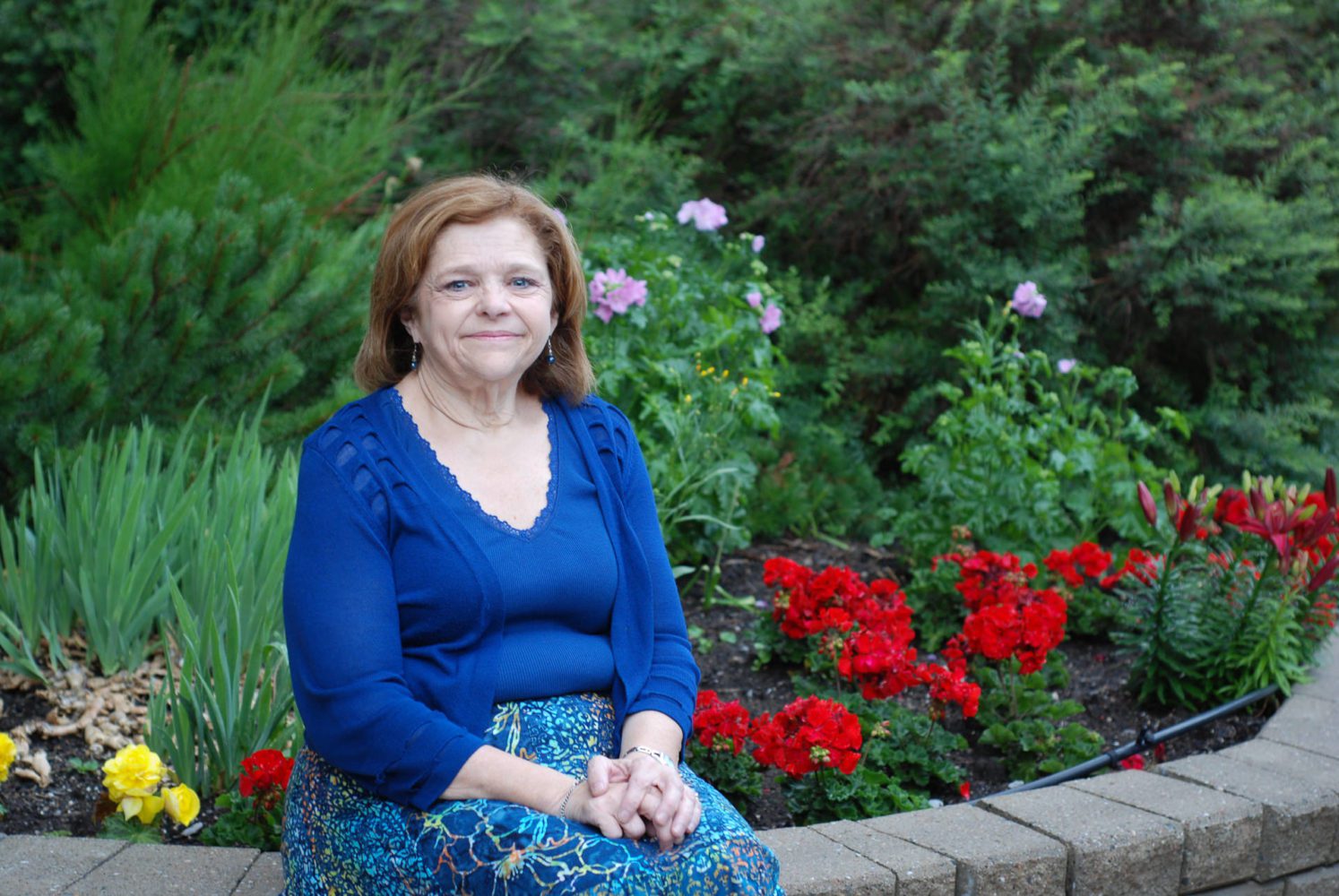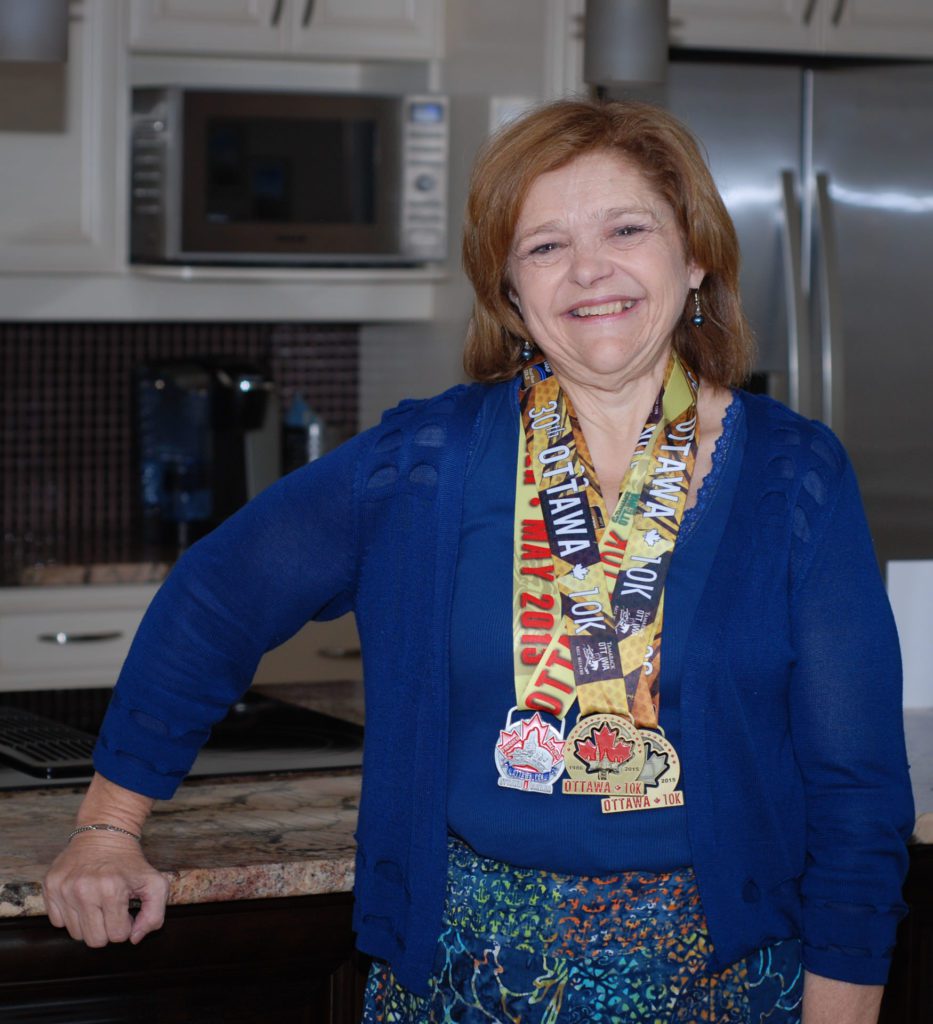“What led you to become an advocate for rare disorders?”
“I won $100 and I had to donate it to a group. So I thought, ‘Who can I give it to?’ My particular illness is about five in a million, so it’s ultra-rare. My disease doesn’t have a group, so I went online and I looked up rare disorders and I found Canadian Organization for Rare Disorders. I sent them the 100 bucks and then I got involved.”

We need to acknowledge that people with rare diseases have special needs.
“For example, I was really sick for 20 years of my life, and my health got progressively worse. There was no internet at that time so I was looking all over for research and for help. I wrote letters all over the place, saying, ‘Please help me. There’s got to be somebody who can help me, I’m really sick.’ And it just went on and on and on, and I felt very alone. I would see ‘mental health strategy’ or ‘diabetic strategy’ – all these other illnesses used to get strategies or plans. But, there was never anything for people with rare diseases. So the isolation is pretty strong.”

“If you have a rare disease it’s very hard to fundraise.”
“Look at breast cancer – they’ve got like billions of dollars and they have runs… If you have a rare disease, you’re getting money from your uncle and your cousin and your neighbours. It’s extremely difficult and there’s no other source in Canada of funding for them other than the pharma industry. You can’t apply for a grant. There’s nothing you can do. So you know, we’re being accused of being too close to industry but how else do we survive? I can tell you from my personal experience that patient advocacy groups can make a huge difference. I wish there had been a group around for the 22 years that I was looking.”

“I think it’s important that people with rare diseases have centres of excellence where they can get proper care from doctors who see more than one patient with that condition. For years I let doctors treat me who were not specialized because I was told that things would probably be okay. And it was just a really, really bad decision. I would never ever do that again.”
“There were errors made that were basically a lack of understanding of what my condition was, and those errors could have ended my life.”

The hardest thing to live with is my dependence on the health system.
“I will always be dependent on the health system; I will always have to see doctors. I take drugs that keep me alive. If I don’t take the cortisone, I would last maybe three days. I have to monitor myself all the time, so I’m always vulnerable. I look like a strong person when I’m in front of my doctor and I think, ‘I hope he’s not going to move.’ And there are certain things that I probably would not even report to him because I’m afraid “Oh, maybe he’ll take me off the drug or something.”

Everyone in the health system needs to recognize the vulnerability of patients.
“There’s a lot of vulnerability when you’re ill and you’re relying on the system. That’s why things like decision aids are really good, but they’re not being used. From what I hear, people think they take too much time, but those kinds of things are really important.”

“Actually, I don’t like telling my story – it’s an invasion of my privacy. People are surprised if I tell them that because I look like I’m very relaxed. But, I always accept invitations because it’s an opportunity to educate people, to talk about rare diseases and to show that the right drug and the right treatment and the right doctor can transform a person’s life. I was using a walker. I had no life – no quality of life at all.”
“But now I’ve just ran my third 10K. Nobody, nobody would believe that – even my doctor said that I wouldn’t be able to run 10K. And I thought, ‘Just tell me I can’t do it!’ So I do share my story – if someone gives you good luck and you do well, then you should be helping others.”


The comments section is closed.